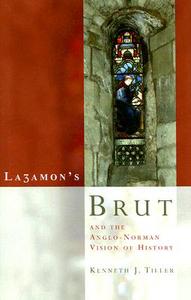

Kenneth Tiller published a book on Layamon's "Brut."
WISE, Va. -- At a time when England's ruling class spoke another language and literary works shunned the use of English, Layomon's "Brut" emerged as a tool of the language's revitalization and re-examination of history, according to a new book by University of Virginia-Wise Associate Professor of English Kenneth J. Tiller.
Tiller's book, Layamon's "Brut" and the Anglo-Norman Vision of History, examines the significance of the poem's use of English and its view on the way history was recorded in 12th century England.
"Brut" was the first significant work written in Old English following the Norman Conquest of England in 1066. Included in its 16,000 lines are narratives of the fall of Troy, the Christianization of the British Celts, and the stories of King Lear and King Arthur.
Tiller argues that Layamon uses the history of the ancient Britons to inspire the post-Conquest Anglo-Saxons to resist the suppression and marginalization of their language and to take an active role in writing English history. Presenting history in the context of post-colonial translation theory, Tiller argues for a central role for the figure of King Arthur in the development of English history and historiography.
Tiller has published work on Thomas Malory's "Le Morte d'Arther" and on the relationship between the English romance and English history.
He has been a member of the UVa-Wise faculty since 1996. He earned a bachelor of arts degree from Central State University, a master of arts degree from Oklahoma State University, and a doctorate from the University of Notre Dame.